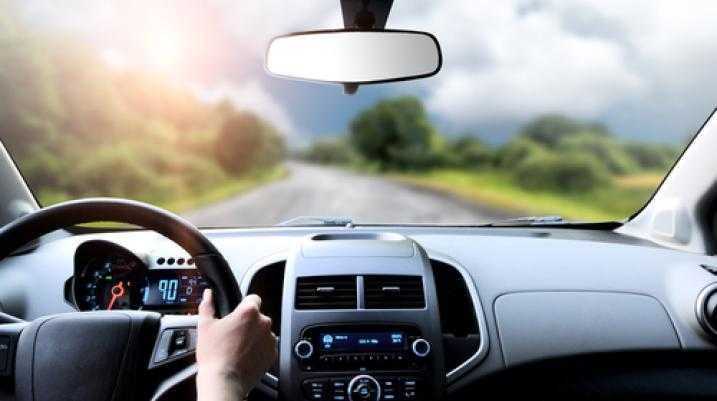Carfax Data Shows Millions with 'DO NOT DRIVE' Notices Remain Unfixed

View a list of vehicles with defective exploding airbags here. *It is important to note that this is not a comprehensive list, and the National Highway Traffic Safety Administration (NHTSA) advises all vehicle owners to check their 17-digit Vehicle Identification Number (VIN) on the NHTSA website to determine if their vehicle is affected.*
Over the last 20 years, millions of vehicles across the nation and all over the world have been in need of urgent repairs as a multitude of recalls have been issued. Some of the recalls have been so severe that they have been classified as "do not drive" or "park outside" alerts. The issues behind these vehicles has become so dangerous now that CARFAX, an American company providing vehicle data to individuals and businesses, has created its search tab for recalled vehicles.
What Recalls Have Been Announced Over the Years?
According to their findings, CARFAX estimates that there are still 2.5 million cars nationwide that require repairs. However, many vehicles have yet to be taken in despite the National Highway Traffic Safety Administration(NHTSA) and other car manufacturers doing their best to get the word out to drivers. Some believe while so many notices are coming out about the recalls, drivers may feel overwhelmed with the information provided, calling it "recall fatigue."
Other issues include shortages of vehicle parts for dealerships to make the proper changes or when vehicles are older and have had multiple owners. It may not cross their minds to take in their older vehicles because they may not realize the recall also pertains to their car. Two of the most noted recalls, as of late, are the Takata airbags and the ARC recalls.
The Takata recall affected over 63 million vehicles worldwide, winning the title of the largest and most complex recall in U.S. history. The safety issues with Takata airbags were first discovered in the early 2000s, but issues with the airbags did not become widely known until 2014. The recalls were made due to the airbag's defective design. The chemical compound within the inflator, when exposed to high heat and humidity over time, could explode, causing the metal parts inside the airbag to shoot out and right into the driver or passengers, causing severe injuries and even death.
As for the ARC, the NHTSA called for an immediate recall of 67 million potentially dangerous air bag inflators manufactured by ARC Automotive after an eight-year investigation found that drivers were potentially at risk of being injured or killed by metal shards and shrapnel propelled at high speeds due to the faulty inflator–risking severe injuries or death.
What is The difference between a Do Not Drive and Park Outside Recall?
As previously mentioned, "Do Not Drive" and "Park Outside" notifications are considered very serious when issued on a recall. Typically these notices are issued jointly by both the automaker and the NHTSA. CARFAX reported that across the U.S., ten states have over 70,000 vehicles with the "do not drive" or "park outside" notices still on the roads, including Arizona, California, Florida, Georgia, Illinois, New York, North Carolina, Ohio, Pennsylvania, and Texas.
When a "Do Not Drive" is given on a recall, it simply means that drivers are highly advised to halt all use of their vehicles due to the safety concern behind the issues in the car. For example, if the airbags could explode, they could lead to an accident or physical harm to the driver and their passengers.
Similarly, when a "Park Outside" notice is listed on a recall, drivers are advised to take caution with their vehicle in the case that it can pose a fire risk. In some cases, it is still safe to drive the vehicle; however, owners with a vehicle marked "Park Outside" are advised to park the car outside of garages and further away from buildings in case it catches fire.
How You Can Learn If Your Car Has Been Recalled
Unfortunately, federal law does not prevent used cars with outstanding recalls from being resold. So the onus is on you to determine whether your recently purchased vehicle is part of an open recall. Websites like CARFAX have online tools in place to help you figure out what is going on with your vehicle and if there are active alerts for any recalls. Another great website for checking recalls is the National Highway Traffic Safety Administration.
When you head to the NHTSA's site, they also have an online tool that allows you to enter your car's 17-digit Vehicle Identification Number (VIN), and it will inform you of any issues or recalls associated with your vehicle. Drivers can also call their car manufacturer or dealership to ask for any information about their vehicle and if there are recalls they should be concerned about. Under federal law, when a recall happens, any repairs must be completed free of charge and in a timely manner.
In the case that a dealership refuses to provide you with the service required for the vehicle, you can file a complaint with the National Highway Traffic Safety Administration, including as many specifics about the dealership as possible. If you believe you have been harmed or injured due to a defective airbag, complete our quick quiz to see if you qualify for a claim. It takes 5 minutes (or less!).
Injured? Getting the compensation you deserve starts here.

Injured?
Not sure what to do next?
We'll guide you through everything you need to know.